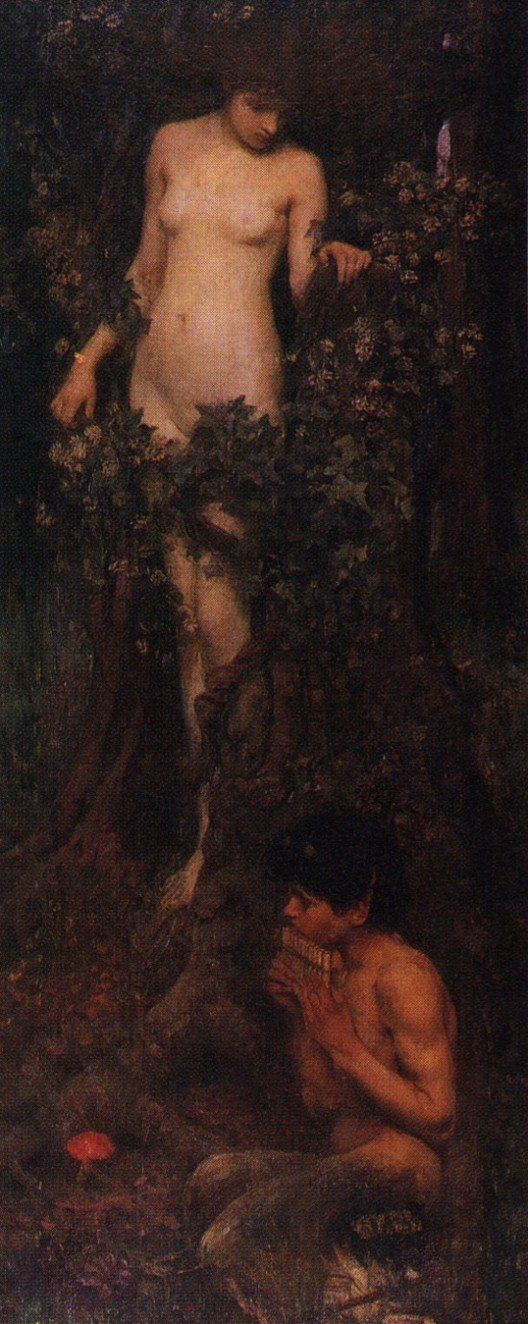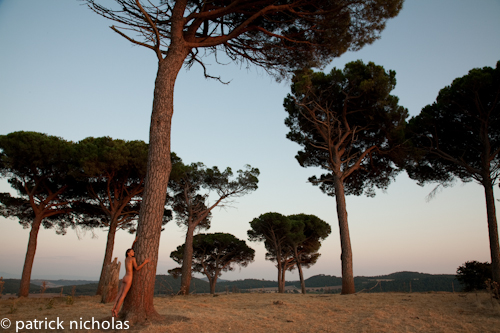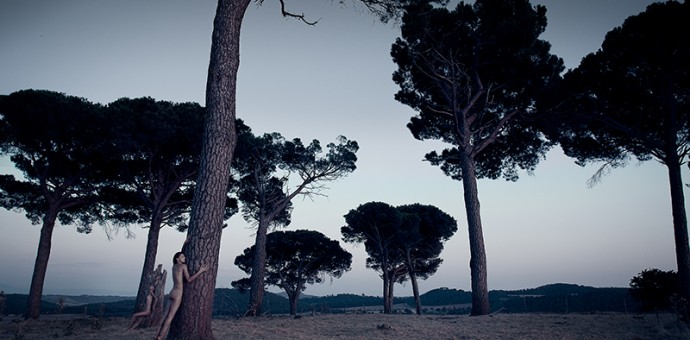Hamadryads
Hamadryads are nymphs associated with trees, each one having its own Hamadryad. They are not immortal, they share their destiny with the tree: when the tree dies, so does the nymph.
I have a particular love for the Maritime Pine with its unmistakable umbrella canopy. They are native to the Mediterranean coast, like coconuts, the pinoli float, seeding themselves on sandy shores. The Mediterranean coast was protected by the macchia (maquisin French), stunted dwarf trees and shrubs in the front line, behind them legions of the tall Pino Marittimo forming the Pineta or pine forest.

Waterhouse “Hamadryad” 1895
Traces of these pinetas still survive but most have been devastated by development and forest fires.
The Romans cultivated the pine and brought it inland for their parks, gardens and alongside roads to provide shade; the planted hilltops with distinctive clumps of them that can be seen for miles and miles.
The pine kernel is collected to provide the essential ingredient of Pesto Genovese and scores of cakes and desserts. The pines of Rome have inspired not only poets and painters, Lord Byron made love to Teresa Guiccioli in the Ravenna Pineta, but musicians too: “The Pines of Rome” could almost be considered the theme music for Rome itself and should be heard before a visit to The Eternal City.

the original shot
And yet the Maritime Pine is by no means eternal. The roadside pine is considered a hazard and if not actually felled is rarely if ever replaced; city planners consider it a nuisance to be substituted with a less troublesome shrub; the coastal pine forests are thinned or even cleared to make way for hotels and gimcrack villas; and worst of all, pinetas are incinerated every summer by arsonists employed by shady organisations and the Mafia.
This picture was taken at Monte Corno, a characteristic hunchback hill rising from the Etruscan plain near Lake Bolsena. One by ones the pines are dying never to be replaced. They cannot self-seed, the sheep and goats eat the saplings.One Hamadryad is dying alongside her host, felled by high winds; the other clings to the trunk, safe for the time being, but for how long?


What a lovely post, melancholic and nostalgic. I particularly like the link between the photo and the Waterhouse picture. Like a Satie nocturne.
Tom
thanks Thomas – I like your reference to Satie thanks for that. I like to put pieces of music with my pictures, Dido’s Lament by Purcell goes well with the Dido picture